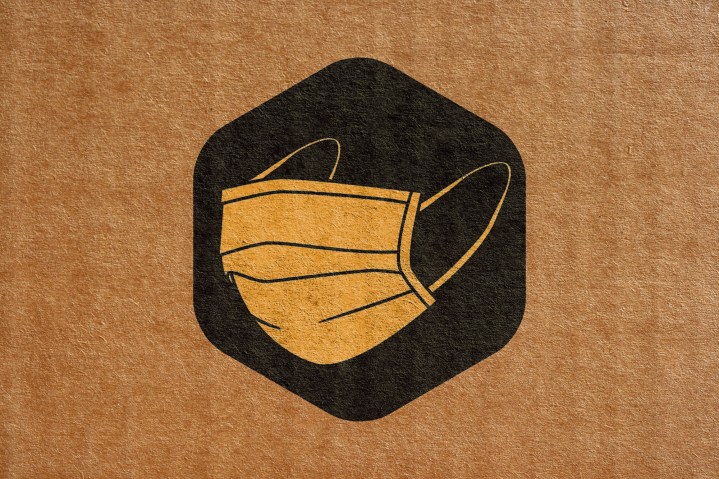
From the Bubonic plague in the Middle Ages to the 1918 flu epidemic, pandemics in the past have wreaked havoc on — and restructured — how society treats its workers.
With pressure on mega-retailers like Amazon to deliver essential goods to people stuck at home — coupled with increased scrutiny over labor practices and a long-simmering labor movement that has been nipping at the heels of these huge suppliers — could this coronavirus pandemic bring about the labor reckoning that activists have been seeking?
“It should,” said Sharon Block, the executive director of the Labor and Worklife Program at Harvard Law School. “I certainly hope that one of the lessons we’ll learn from this horrible experience is how important so many low-wage workers are, and how precarious their positions are.”
Amazon had already been under increasing fire for its labor practices. Last November saw the launch of the Athena Coalition, a conglomerate of pro-labor rights groups pushing for better wages and conditions for Amazon workers. Athena joined a chorus of other grassroots groups all fighting Amazon on everything from its warehouse conditions to its environmental impact.

The coronavirus, officially known as COVID-19, has only exacerbated the tensions between Amazon and its workers — which came to a head last month as thousands fell ill across the country.
Workers at a New York warehouse staged a walk-out to protest what they claimed were lax safety measures by Amazon to protect its workers. Days later, on March 30, Amazon fired Chris Smalls, the warehouse worker who organized the strike, according to CNBC.
Amazon claims Smalls was fired for breaking social distancing guidelines and denied he was canned for organizing the protest.
“I hope that one of the lessons we’ll learn from this horrible experience is how important so many low-wage workers are, and how precarious their positions are.”
In a statement to Digital Trends, Amazon spokesperson Kristen Kish called the allegations of retribution “simply unfounded.”
“We did not terminate Mr. Smalls employment for organizing a 15-person protest,” she said. “We terminated his employment for putting the health and safety of others at risk and violations of the terms of his employment. Mr. Smalls received multiple warnings for violating social distancing guidelines.”
Since Smalls’ firing, Amazon has said the company is tracking its workers and could fire them if they violate social distancing rules, CNBC reported.
Still, it seems like labor pressure may be building elsewhere. A group of warehouse workers in Chicago staged a demonstration on March 30 as well. Workers in Detroit did the same two days later, and Amazon quickly announced thereafter that they would provide masks and temperature checks in warehouses, the Verge reported.
But Block told Digital Trends she was unsure if the labor movement can successfully leverage this moment to have its demands met.
“Part of recovering from this nightmare will be giving workers the tools they need to have the voice they’re demanding,” Block said.
A post-coronavirus world could offer opportunities for workers to snatch more rights for themselves.
The Bubonic plague in the Middle Ages killed an estimated 50 million people across several continents over the course of a century — but by the time the disease had run its course, the working population in Europe was so dramatically reduced that society completely restructured itself, with some historians claiming the plague allowed the middle class to be born.
Some historians claiming the Bubonic plague allowed the middle class to be born.
The 1918 flu epidemic killed millions as well, but following a global economic depression and war, the U.S. saw the relative prosperity and stability of the 1950s, and a stronger middle class.
“I’m always skeptical when other people make mega-forecasts,” said David Weil, Dean of the Heller School for Social Policy and Management at Brandeis University, when asked whether the U.S could see a great restructuring a la those of the post-Bubonic plague and post-1918 flu eras. “What I can say is that in my lifetime, in this country, we have never faced a pandemic situation like this that has affected every aspect of how we’re living. Whenever we’ve had this kind of major change, it’s hard not to see that there are systematic effects in terms of how we act as a society.”
Dania Rajendra, the director of the Athena coalition, told Digital Trends she was hesitant to explicitly call the pandemic an “opportunity.”
“The specter of suffering is so large,” she said. “But, the leadership we’re seeing from workers in terms of their forthrightness of what’s inside Amazon’s operations stands in stark contrast to what we’re seeing from executives …clearly this is a level of militant worker activity is unprecedented in Amazon’s American operations.”

Rajendra, Block, and Weil all told Digital Trends the pandemic was further exposing and sharpening the rifts that were already present in the U.S. economic system, particularly those involving the conditions for low-wage and gig workers.
“I can’t believe someone will walk away from this experience and not say ‘it’s insane we don’t have simple paid sick leave rules,’” Weil said.
Weil and Block said much of the organizing and negotiating that would need to be done to adequately protect these workers falls outside the boundaries of where current U.S. labor and environmental law stands. This doesn’t mean that won’t change.
Both experts pointed to the sudden, swift passage of measures like unemployment insurance for contract workers as evidence the laws can be rewritten — despite widespread fear of the deadly disease’s spread.
“The American labor movement’s history is a history where sometimes the greatest bursts of activity happened outside traditional boundaries of movement,” Weil said.



